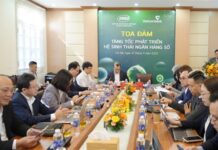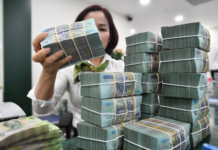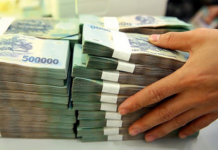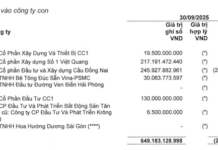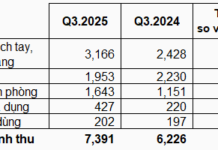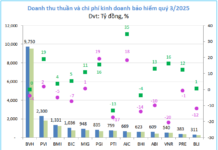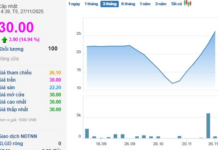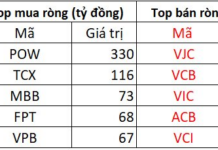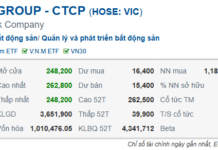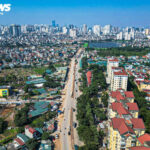On the morning of October 7, Prime Minister Pham Minh Chinh chaired the regular October 2024 Government meeting with 63 localities via teleconference.
Also attending the meeting were members of the Politburo, Secretariat of the Party Central Committee, Deputy Prime Ministers, leaders of ministries, sectors, central agencies, secretaries, and chairmen of the People’s Committees of provinces and cities, and leaders of several state-owned enterprises.
The meeting focused on discussing the direction and management, socio-economic situation in the third quarter, the first nine months, and key tasks and solutions for October, the fourth quarter of 2024, and beyond to strive to achieve the set goals and tasks.
13 PROMINENT RESULTS IN THE FIRST NINE MONTHS
The reports and opinions pointed out 13 outstanding results regarding the socio-economic situation in the first nine months.
First, the most important goal of macroeconomic stabilization, inflation control, growth promotion, ensuring the major balances of the economy, and controlling budget deficit, public debt, government debt, and foreign debt was achieved. This also improved the material and spiritual life of the people and ensured national defense and security.
Second, growth was promoted, with each subsequent quarter showing higher growth than the previous one, and the first nine months outperforming the set scenario: GDP in the first quarter increased by 5.66%, the second quarter by 6.93%, the third quarter by 7.4%, and the first nine months by 6.82%. All three sectors of agriculture, industry, and services grew well. The economic structure continued to shift positively.
Third, macroeconomic stability was maintained, inflation was controlled, and major balances were ensured. The consumer price index (CPI) in the first nine months increased by 3.88% (core inflation increased by 2.69%). Energy security, food security, and labor supply-demand balance were guaranteed.
Fourth, exports continued to increase strongly, with a large trade surplus, contributing to the balance of payments. Export turnover increased by 15.4% (the domestic sector increased by 20.7%, and the FDI sector by 13.4%); import turnover increased by 17.3%; and an estimated trade surplus of US$20.8 billion was recorded.
Fifth, the service and tourism sectors witnessed a strong recovery. Total retail sales of goods and services consumption in the first nine months increased by 8.8% over the same period. The number of international visitors in the first nine months reached over 12.7 million, up 43.0%.
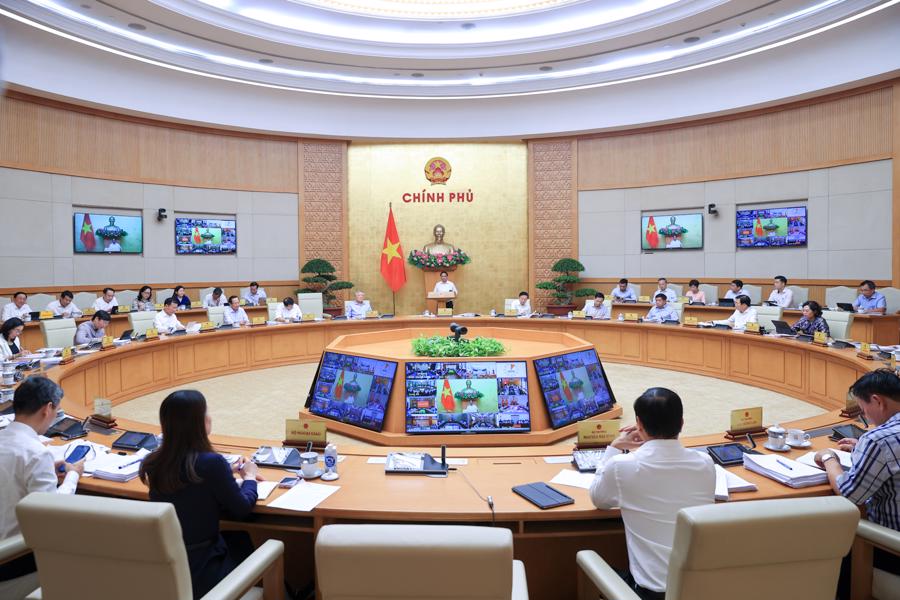
Sixth, the state budget revenue and expenditure situation continued to improve significantly. Total state budget revenue in the first nine months reached 85.1% of the yearly estimate, up 17.9% over the same period. Public debt, government debt, national foreign debt, and budget deficit were well controlled, staying below the set limits. In the first nine months, VND 116.4 trillion of taxes, fees, charges, and land rents were exempted and reduced; the total amount for the whole year of 2024 is expected to be nearly VND 200 trillion.
Seventh, investment in development continued to achieve positive results, creating a driving force for economic growth. Total social investment capital in the first nine months increased by 6.8%; of which, investment capital of the state sector increased by 4.1%; the non-state sector by 7.1%, and the FDI sector by 10.7%. FDI attraction in the first nine months reached US$24.78 billion, up 11.6%; realized FDI capital reached US$17.3 billion, up 8.9% (the highest in the last five years).
Eighth, business development continued its positive trend, with 183,000 newly established and reopened enterprises in the first nine months, higher than the number of businesses leaving the market (163,000).
Ninth, administrative reform was given attention, especially in cutting and simplifying administrative procedures, promoting national digital transformation, and implementing Proposal 06. The e-Government Development Index in 2024 rose 15 ranks to 71st out of 193 countries.
Tenth, startup and innovation were strongly promoted. The Global Innovation Index in 2024 rose two places compared to 2023, ranking 44th out of 133 countries, up four places compared to 2022.
Eleventh, the fields of culture and society were given attention; social security was ensured, and people’s lives were improved. The average income of laborers in the first nine months reached VND 7.6 million/month, up 7.4% over the same period. In the third quarter, 96.1% of households assessed their income as stable or higher than the previous year.
Twelfth, active support was provided to people and businesses in coping with, preventing, and overcoming the consequences of Storm No. 3 (Yagi). A total of VND 3,400 billion was mobilized, along with many supplies and essential goods. The government provided 432.6 tons of rice to support the people; ministries, sectors, and localities are focusing on implementing support measures.
Thirteenth, the political and social situation was stable; national defense and security were strengthened, and external relations and international integration were promoted. Many international organizations highly appreciated Vietnam’s economic results and prospects. The IMF raised its growth forecast for Vietnam in 2024 to 6.1%, the World Bank to 6.1%, ADB to 6%; Fitch Ratings forecast Vietnam’s growth at 6-7% in the medium term, although it assessed that the world and regional situation would remain challenging.
12 KEY TASKS AND SOLUTIONS
Concluding the meeting, Prime Minister Pham Minh Chinh agreed with the reports and opinions presented. He assessed that the socio-economic situation in September, the third quarter, and the first nine months of 2024 continued the trend of improvement in the following months, quarters, and over the same period last year, with specific results as mentioned in the reports and opinions.
Besides the very basic results that the delegates have pointed out, the Prime Minister frankly stated that our country still has many shortcomings, limitations, and difficulties and challenges. Notably, Storm No. 3 caused significant damage, and the consequences of COVID-19 still linger. Macroeconomic management pressure remains high, the disbursement rate of public investment capital is lower than the same period, and production and business activities in some fields face difficulties, especially in agriculture.
In addition, difficulties and obstacles in the real estate market are still slow to resolve; bad debts tend to increase; the progress of the VND 140 trillion social housing credit package has improved but not yet met the requirements. Law-building in some places has not been given due attention, and the lives of a part of the people remain difficult, especially in remote, border, and island areas, and among ethnic minority groups.
The Prime Minister agreed with the lessons drawn in the reports and opinions of the delegates and emphasized and supplemented some lessons learned from reality: It is necessary to grasp the practical situation, be proactive, timely, flexible, and effective in policy response, and not be passive or caught by surprise. Leadership, direction, and administration must be determined, with great efforts and drastic actions, focusing on key issues.
The Prime Minister stressed the need for strong decentralization and empowerment in line with the requirements of the 10th Plenum of the Party Central Committee, with the viewpoint of “localities taking responsibility for decision-making and implementation and bearing responsibility.”
“There is no reason for us not to decentralize and empower, and there is no reason for us to maintain the mechanism of permission and approval. In the implementation process, if any problems or contradictions arise, we will continue to resolve them,” the Prime Minister said.
Regarding the 12 key tasks and solutions, the Prime Minister requested that first of all, we must focus on preventing and overcoming the consequences of natural disasters and floods, stabilizing people’s lives, and promoting the recovery of production and business activities. It is necessary to strongly and effectively implement Resolution 143/NQ-CP on key tasks and solutions to urgently overcome the consequences of Storm No. 3 (Yagi).
Second, we must thoroughly prepare and ensure the progress and quality of the reports and proposals at the 8th session of the 14th National Assembly, with a spirit of proactive implementation according to assigned functions and tasks, close coordination with the agencies of the National Assembly and the political system, and timely handling of problems to create consensus among the people and between agencies. It is important to effectively implement the Conclusion of the 10th Plenum of the Party Central Committee, which includes important contents, particularly on institution building and completion and coordination between the National Assembly and the Government.
Third, continue to prioritize promoting growth in tandem with maintaining macroeconomic stability, curbing inflation, and ensuring the major balances of the economy.
Strive for a GDP growth rate of about 7% for the whole year, with growth in the fourth quarter from 7.5-8%.
Conduct proactive, flexible, timely, and effective monetary policy management; coordinate synchronously, harmoniously, and closely with a reasonably expanded fiscal policy and other macro policies; and avoid “jerkiness” in policy management.
The State Bank of Vietnam should maintain exchange rate stability, strive to reduce lending interest rates, increase access to credit, focus on priority areas, aim for a credit growth of about 15% for the whole year, and control bad debt risks.
The Ministry of Finance should strive to increase revenue and practice thrift in state budget expenditure, strongly promote digital transformation, and apply electronic invoices in revenue management. It is necessary to drastically save regular expenditures, increase investment expenditures, effectively implement policies on tax and fee extension and reduction, and strive to increase total revenue for the whole year by at least 10% compared to the estimate.
Effectively exploit fiscal policy space; the Ministry of Finance urgently studies and proposes the issuance of an additional VND 100 trillion in investment for strategic national infrastructure projects.
Fourth, focus on promoting and creating breakthroughs in public investment disbursement, strongly promoting the three national target programs, and striving for a disbursement rate of at least 95%. Accelerate the activities of the Prime Minister’s working groups and 26 working groups of government members working with localities immediately after the meeting. Speed up the progress of important and key national projects and works, the system of expressways, and preparation for investment in important railway projects.
Fifth, focus on renewing traditional growth drivers (investment, export, and consumption) and strongly promoting new growth drivers such as regional and inter-regional economies, urban areas, digital transformation, green transition, circular economy, sharing economy, knowledge-based economy, and new industries and high-tech fields (such as semiconductor chips, AI, and cloud computing). Agencies should soon submit a decree on the investment support fund for promulgation.
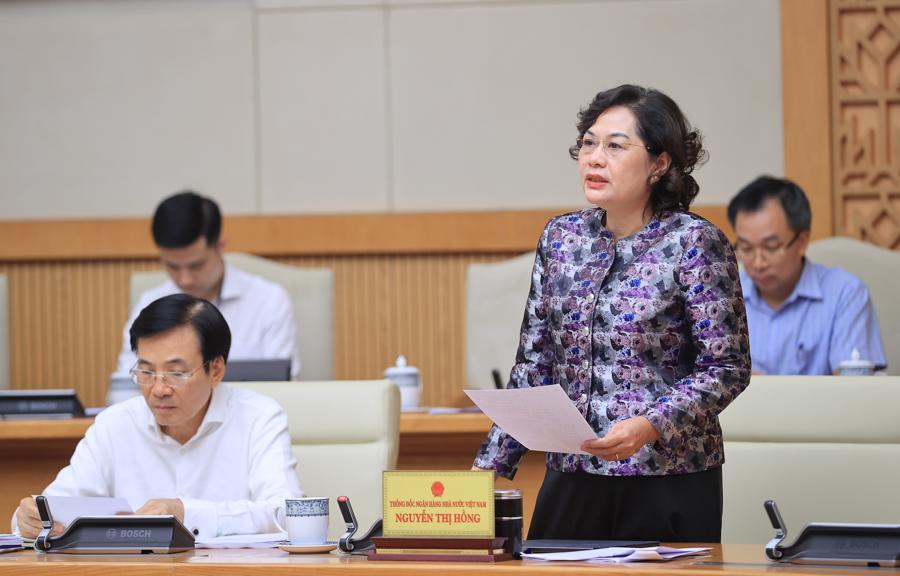
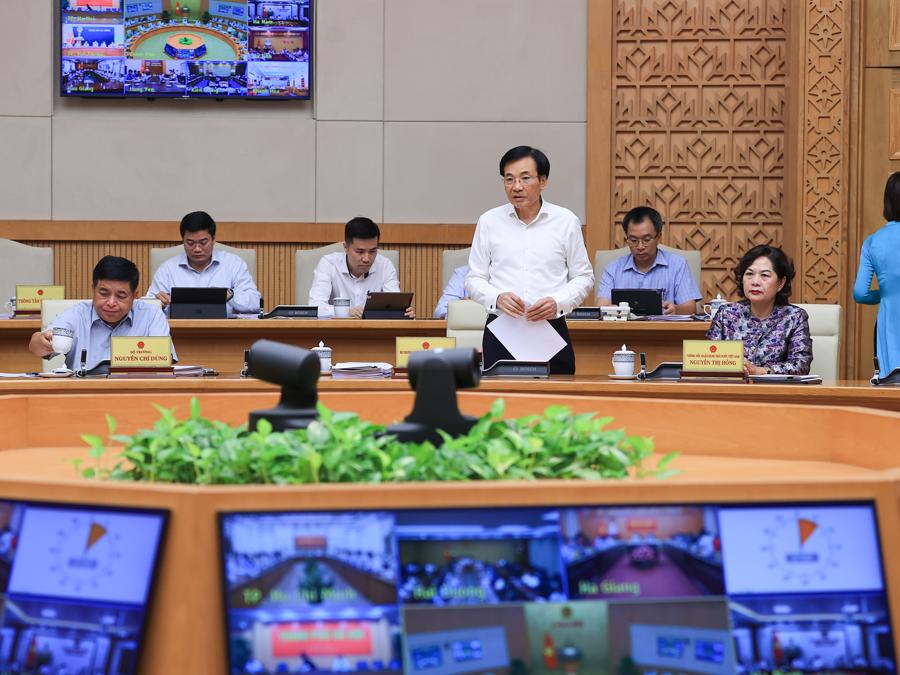
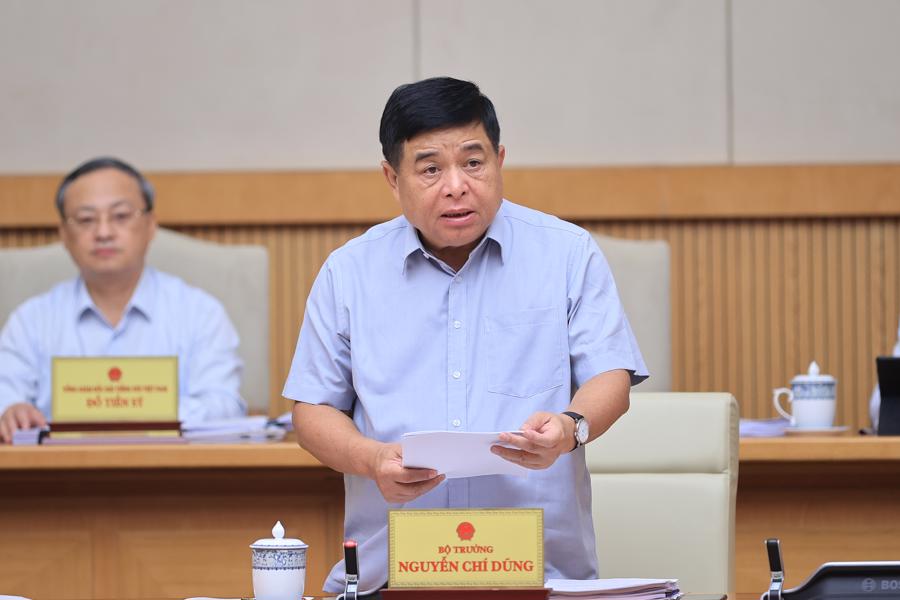
Leaders of ministries and sectors speak at the meeting – Photo: VGP
Sixth, promote the perfection of institutions and laws, remove legal obstacles, reform administrative procedures, strongly promote national digital transformation, and improve the business investment environment. Promote national digital transformation, Proposal 06, and the construction of the National Data Center.
Seventh, continue to handle decisively the problems and projects that have been left behind, prolonged, weak banks, and the handling solution for SCB Bank. Expedite the resolution of difficulties and obstacles related to projects and land in the conclusions of inspections, audits, and court verdicts mentioned in Proposal 153.
Eighth, pay attention to the fields of culture, society, and environment; ensure social security, improve people’s lives, and invest in cultural institutions. Closely monitor natural disasters and floods, respond promptly and effectively, and minimize damage. Effectively and substantially implement the “Whole country joins hands to build houses for the poor” movement nationwide. Effectively implement the Proposal on developing human resources for the semiconductor industry and the Strategy for developing the semiconductor industry. The Ministry of Health should ensure sufficient supply of medicines, medical equipment, and supplies.
Ninth, strengthen national defense and security; promote corruption prevention and negative behavior; and improve the efficiency of external relations and international integration. Well organize external activities of high-ranking leaders; promote economic diplomacy and negotiate new FTAs.
Tenth, strengthen information and communications, especially policy communications, to contribute to creating social consensus and promoting a joyful and vibrant atmosphere in the whole society.
Eleventh, the Ministry of Finance urgently submits to the Standing Committee of the National Assembly the principles, criteria, and norms for allocating regular state budget expenditures for 2026 and investment capital for the 2026-2030 period. Attention should be paid to prioritizing capital sources for projects with inter-regional, national, and international connectivity, especially those connecting the expressway system with airports and seaports, and implementing the high-speed railway and urban railway systems.
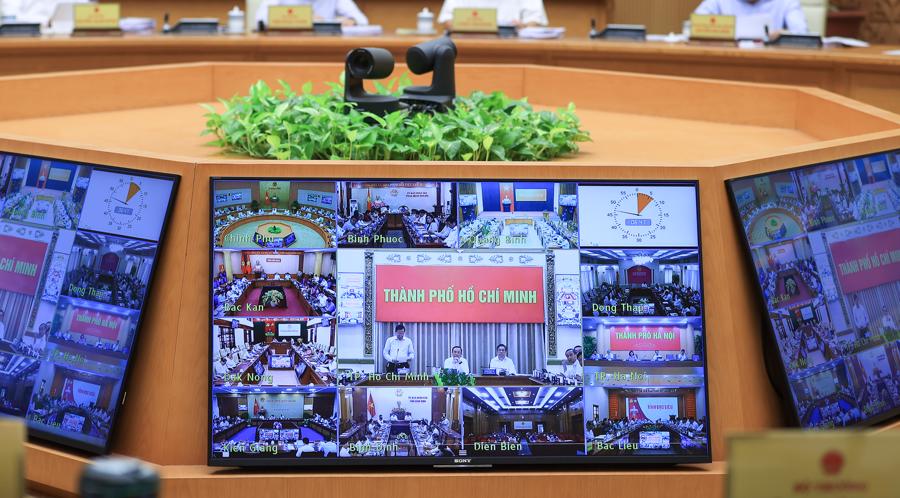
Twelfth, actively implement the tasks of the Socio-Economic Sub-Committee and well prepare for the Party Congresses at all levels, towards the 14th National Party Congress.
The Prime Minister requested that the ministers, heads of sectors, and secretaries and chairmen of the provincial and municipal People’s Committees pay special attention to concentrating their leadership and direction on the implementation of the following five important and urgent groups of tasks and solutions.
First, prioritize growth, promote traditional growth drivers, and strongly promote new growth drivers.
Second, ensure sufficient supply of food, electricity, gasoline, oil, water, medicines, medical equipment and supplies, and input materials for production, business, and people’s lives.
Third, coordinate with the Standing Committee of the National Assembly and the committees of the National Assembly to prepare laws and resolutions submitted to the National Assembly in the direction of strengthening decentralization and empowerment, reducing administrative procedures, managing effectively, and promoting development, and mobilizing all resources for development.
Fourth, complete housing support for households affected by natural disasters, deploy a VND 140 trillion credit package for social housing development, and respond to the “Whole country joins hands to build houses for the poor” movement.
Fifth, promote production and business activities, promote public investment disbursement, create jobs, and improve the spiritual and material life of the people.
The Prime Minister also stated that the Government, ministries, sectors, and localities, based on their functions, tasks, and powers, should pay attention to listening to the opinions and recommendations of the people, businesses, socio-political organizations, international organizations, and investors. Be receptive, and have timely, appropriate, and effective solutions and tasks.







